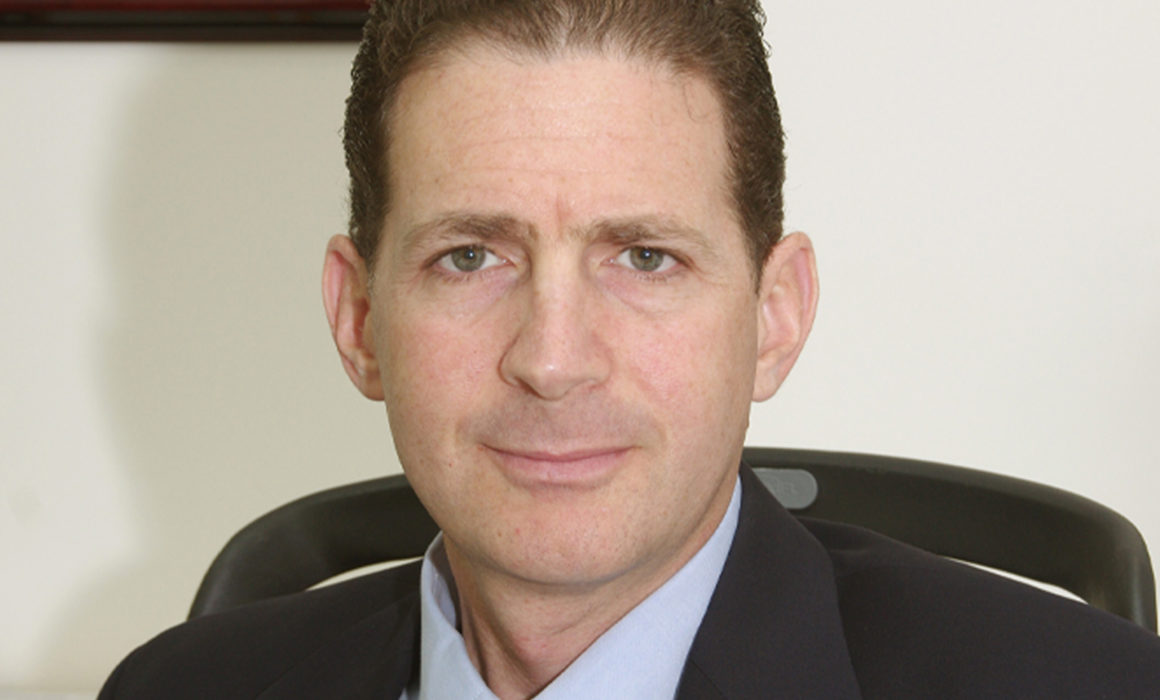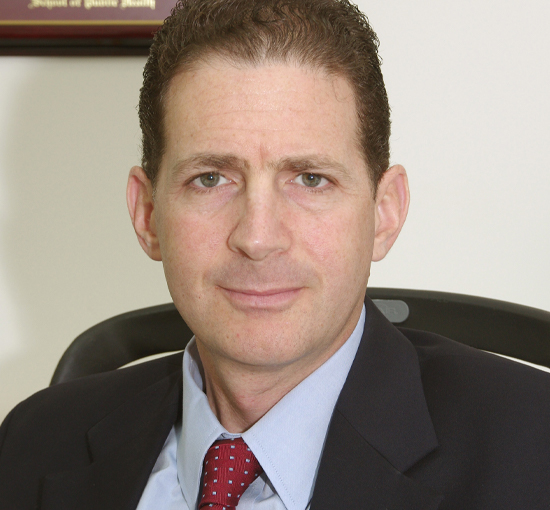Alumni Spotlight: A Conversation with Technion Alumnus Dr. Eyal Zimlichman

Dr. Eyal Zimlichman is the chief medical officer and chief innovation officer at Sheba (Tel Ha’Shomer) Medical Center in Israel, considered to be among the best hospitals in the world. Dr. Zimlichman is the founder and director of Sheba’s ARC innovation program, an open global innovation ecosystem that aims to redesign healthcare through digital health solutions by 2030. For these efforts, he was named as one of “Israel’s 100 Most Influential People This Jewish Year” by Israel’s leading financial newspaper, TheMarker, in 2019. Previously, Dr. Zimlichman served as lead researcher at Partners Healthcare’s clinical affairs department in Boston, where he advanced strategic care redesign.
Dr. Zimlichman was on several advisory committees commissioned by the Office of the National Coordinator for Health Information Technology at the U.S. Department of Health and Human Services (ONC), and is an active member of several committees at the Israeli Ministry of Health. Eyal is a founding member of the International Academy of Quality and Safety in Health Care (IAQS). Dr. Zimlichman earned a M.Sc. from the Harvard School of Public Health’s executive Health Care Management and his MD from the Technion in 1998. He is board certified in Internal Medicine.
Interview by Tova Kantrowitz, Senior Director of Strategic Partnerships and Outreach
- What does it mean to be the “chief innovation officer” of one of the top medical centers in the world?
In 2016 I was asked to add a new role as Chief Innovation Officer at Sheba Medical Center where I was already serving as Chief Medical Officer since 2013. Wearing these two hats provides me with an interesting way to identify the challenges we face– this is the first and most important step that is often overlooked when we speak about innovation. When you work at a hospital – as a medical director or chief quality officer (my area of expertise) dealing with patient safety – it is critical that we understand exactly what the problems of the system are and what works and what doesn’t work. Taking innovation from that perspective is the right way to do it. - What specific advantages do you bring to this unique approach to healthcare?
At Sheba a few of our employees fall into the category of non-essential workers that the government directed to go on leave during this crisis. One question we faced is whether “innovation” was essential or non-essential. I was proud of the decision we made in determining that it is very essential in these times. We had already built a strong innovation team outside of times of crisis that is constantly looking at our systems and processes, giving us a huge advantage in addressing the current situation. As it turns out, our innovation team is currently one of the busiest in the hospital – working 24/7 to come up with what we think will be game-changing solutions.Our established program is called ARC – Accelerate, Redesign, Collaborate, but after about a day in this new crisis mode we renamed it – ARC Battle Mode COVID-19. This refocus enabled our entire infrastructure to take everything we had that was not essential and channeled to finding solutions for COVID-19.One of the first things we did was host a hackathon to bring all the best people to work together. As a result we are pursuing a number of new ideas. One of them was actually presented by one of our employees was a new use for a drug he has already been working on that could be adapted for treating COVID-19. Another approach focused on diagnostics, for example – using spectrometry – via a camera or breathing device to determine whether one has the virus or not.
- How can your methods help combat disease in general and in particular the Corona Virus pandemic? In practical terms what is ready for application?
One of the key elements is the enhancement of our telemedicine platform, adjusted for Corona virus patients. In treating them, we must minimize contact with the medical staff. We’ve seen staff in China and Italy that got infected and even died. This is a very critical issue when trying to maintain the capacity to treat a large number of patients. At Sheba we built a separate facility about one mile outside of our main campus. The facility was designed with all the most sophisticated telemedicine technology that enables staff to care of patients without being in direct contact with them. This includes talking with patients via video, and taking vital signs and conducting physical exams where they listen to the heart and lungs and look into the patients throat from a distance. We now offer a Corona Telemedicine Kit that bundles relevant technologies that we have tested here and even facilitates home monitoring and treatment of patients to further protect the medical workers. We are actively sharing our experience via a webinar with medical professionals around the world.Other approaches from the Innovation group include:- A sensor placed under the mattress of the patient that tracks vital signs and employs an AI algorithm that detects if the patient is about to deteriorate in order to react ahead of time and prevent the deterioration.
- We are leading the search for ventilation machine substitutes that are critical in treating COVID-19 patients, especially as the numbers rise. As part of a national effort, ARC is working with industry to develop a leaner yet effective ventilator in partnership with the Israel Aerospace Industry, the Ministry of Defense and special army units.
- Diagnosis of the virus using a patient’s vocal signature. The patient talks into an app on his or her phone, and it will be able to indicate if positive or not. We are working with a startup company as well as the Israeli Defense Industry to move this forward.
- What are the key elements in putting an end to this situation? Do you think a vaccine will realistically be available in the near future?
Everyone has their own guess. My viewpoint – the peak in Israel will be in April and then it will slowly receed. In the U.S., I believe it will be a few weeks later – likely in May. By July we should be back to normal. I believe the climate will contribute, as this Virus does not like high temperature and humidity. Will it come back next winter? It is possible, but hopefully we’ll have a vaccine by then.
- Is there a global effort to work collaboratively to address the challenge?
We work strongly with US partners. For example, we launched ARC Chicago – life science park in Central location in Chicago. We work with other countries including some of the major and prestigious medical centers in the world that look to us to lead. Our connections are very strong and we provide webinar trainings to take what we have learned so they can implement in their own facilities.
- As a major figure in Israeli health establishment, how does your work today differ from when you were in Boston and also when you served on national health-related government bodies in the US.
Israel is unique – I love working in this environment. It is easy to find a good size group of people that think the same and want to work as quickly as you do. The startup scene in Israel is huge. Typically, I see 5-8 startups I have never seen before on average per week, some with incredible innovation. Outside of Israel – this is not the case. This makes it easier for us.The environment in Israel during a crisis is classic. Everyone comes together and works together to solve the problem. With managing a crisis – we must act fast and prepare for the worst-case scenario and get ready for it. In Israel the reaction was better than we thought. In addition, in terms of preparedness for emergency – Israel is more agile. In Sheba we already built a new ICU unit with 44 beds in an underground facility (originally for another purpose) and we are now building capacity for another 44 ICU beds. The ability to move very quickly is something that is an advantage in Israel.The infrastructure of ICU beds per population is also important to consider – Italy has the lowest number, Germany highest. The U.S. has a relatively high number of ICU beds to population which I think will help in dealing with the Corona Virus crisis.
- When you were a student at the Technion Faculty of Medicine, did you ever imagine that you would be in a position where you could have a positive impact so many lives? What were the key factors during your studies that prepared you for your role today?
I graduated in 1998 and was in Academic Reserve – Atudah program. When in medical school my goal was to treat patients and save lives. My father is a doctor and I looked up to him as an example. This was my vision – I did not think I would be in this kind of position today. My point of view changed rapidly in the army – which at an early age allowed me to look at the broader picture and gain some management experience. Once I got this – it became part of what I wanted to do. I went through a long period where I was doing both – treating patients and leading. With time I understood if I want to be a leading opinion leader – I need to devote time to that. My medical duties were reduced over time until about 3.5 years ago when I took on the dual role – I stopped seeing patients. (Even thought I am still the doctor in the family.)When I was a Technion medical student, there was not much to encourage deliberate interaction with the physical and engineering disciplines as there is today. However, the Technion education did provide advanced studies in basic science such as Chemistry, Physics and Math – at a higher level as compared to other medical schools. At the same time – being in an environment where for example, my roommate was a Ph.D. student in Computer Science, exposed me to a wide range of fields. This opened up the possibilities of more multidisciplinary work where it is not just about the doctor – but about the team where you work with engineers, computer professionals – and together create the added value. I appreciated this aspect early on and mostly due to what I have seen at the Technion.
- What do you think the future holds? Based on your experience – will we experience more pandemics or global health challenges that we unimaginable before today?
It is critical that healthcare experience the biggest revolution that it has ever seen. Healthcare will go through the digital revolution – similar to the banks where we do not physically need to go to the bank to conduct financial transactions. Telemedicine will play a huge role. Hospitals will shrink because most of the treatment provided by hospitals today will be done at home. We’ll see AI help us make better medical decisions, improve care and produce greater efficiencies and quality of care. I believe we’ll also see VR play a huge role – most of the pain in the future will be treated by VR not medication. This is the most exciting time to make an impact. The digital revolution is going to make a difference and the Corona virus is accelerating that many manifold. For example – the telemedicine platform at Sheba – the plan was to scale up in two years. They have gone to 50% of services within one week. Doing in three weeks what we planned to do in 2 years. Innovation can flourish in times of crises. And I believe that in retrospect the COVID-19 pandemic will also be remembered for that.
